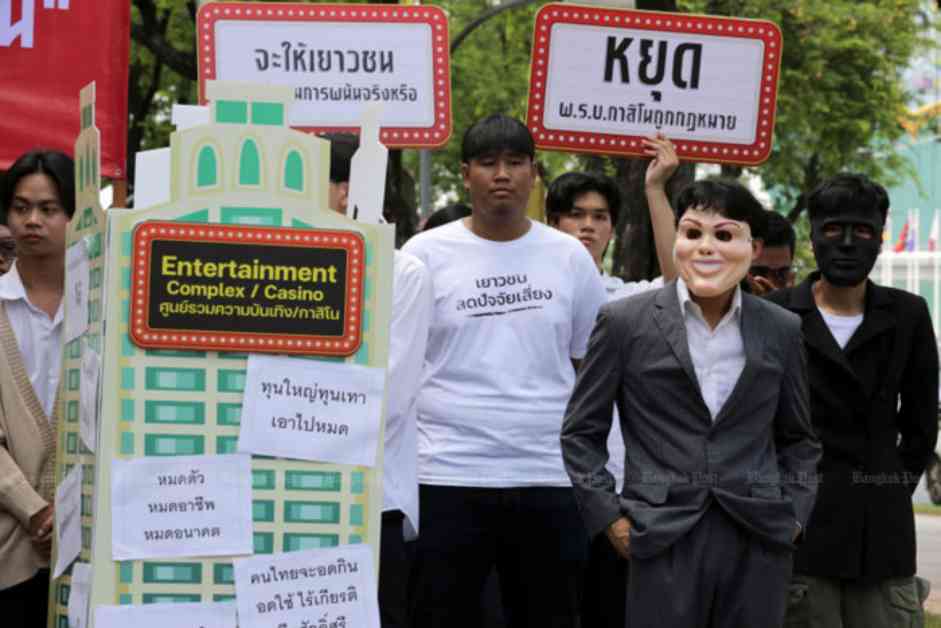A public hearing on the casino-entertainment complex bill has recently concluded, with the feedback gathered set to be submitted to the cabinet for review. The bill, which aims to establish entertainment complexes and legalize casino operations within them, has sparked a range of opinions and suggestions from the public.
Supporters of the bill argue that legalizing casinos and setting up entertainment complexes will significantly boost tourism revenue in the country, leading to increased tourist spending. The bill proposes that operators of approved entertainment complexes will receive 30-year licenses, with an initial registration fee of 5 billion baht and an annual fee of 1 billion baht. These operations will undergo a review every five years, with the possibility of renewing the license for an additional 10 years after the initial 30-year period.
One of the key suggestions put forward during the online public hearing was to rename the bill as the “integrated resort bill”, drawing inspiration from the successful model in Singapore. Participants also proposed adjustments to the duration of the license, ranging from 10 years to 50-60 years, as well as considerations for VAT exemptions for operators and tax-free gambling winnings.
There were also discussions regarding the entrance fee for Thai citizens, with suggestions to reduce it from 5,000 baht to a more reasonable 1,000 to 2,000 baht. Some participants recommended that the entrance fee remain consistent nationwide for a period of 10 years before any changes are made. Additionally, there were proposals to limit the number of casino complexes in major tourism destinations like Phuket, Chiang Mai, and others, with specific restrictions on the number of complexes in Bangkok and other provinces.
Concerns were also raised about the potential negative impacts of legalizing gambling, such as money laundering, crime, gambling addiction, and social issues. Participants suggested the establishment of a fund to compensate individuals affected by these adverse consequences. The proposal also included recommendations for the allocation of space within entertainment complexes for casinos, with suggestions ranging from 5% to 20% of the total area, and the possibility of operating 24 hours a day.
Overall, the public feedback on the casino-entertainment complex bill has highlighted a diverse range of perspectives and considerations. As the cabinet reviews the feedback and considers potential amendments to the bill, it will be crucial to balance economic benefits with social responsibilities to ensure a comprehensive and sustainable approach to the establishment of entertainment complexes in Thailand.




















